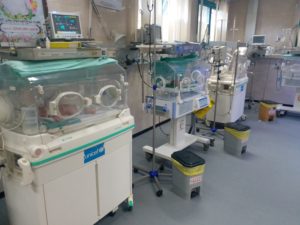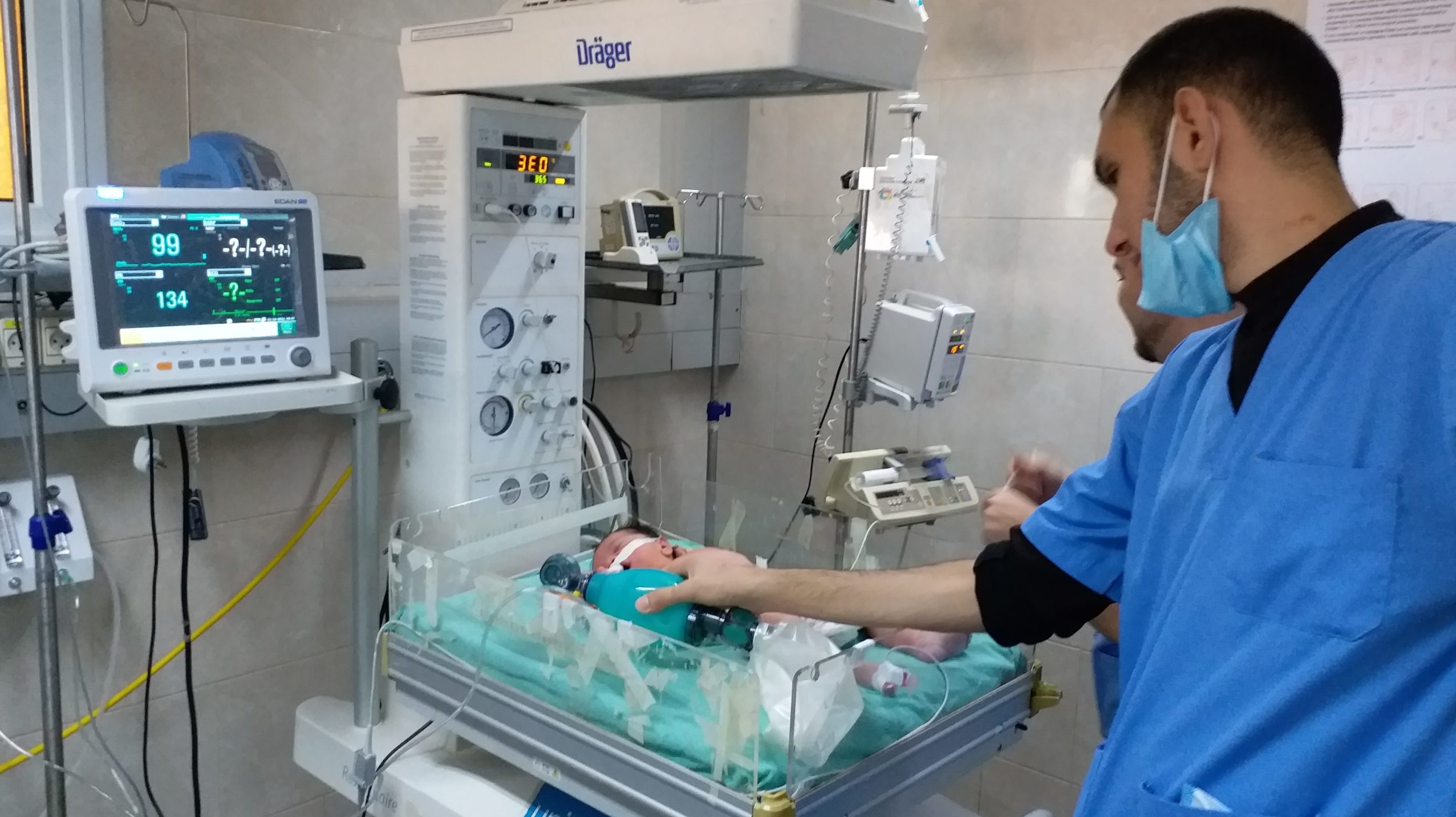Severe Shortage of Hospital Equipment Threatens Lives of Gaza Newborns
Baby deaths can be reduced by 80% if the necessary incubation equipment is provided, health official says
At Al-Shifa Hospital, the largest and most central medical facility in the Gaza Strip, dozens of babies are facing inevitable death each month. The hospital’s Special Care Baby Unit (SCBU) is suffering from a complex crisis due to the severe lack of necessary medical equipment and a shortage of medical personnel.
Each month, between 1,200 and 1,300 babies are born at Al-Shifa hospital, many of them from high-risk pregnancies and in need of special care, according to Dr. Nasser Bulbul, head of the Special Care Baby Unit at Al-Shifa.
Bulbul told The Media Line that the growing number of births in high-risk categories, at least five a day, is burdening the hospital and the members of its medical staff, who struggle to save the babies amid the scarce resources.
“Our biggest and main problem is the lack of necessary baby incubators and intensive care incubators in particular. With only 16 IC incubators available in the unit, the hospital’s deficit rate has reached more than 45%,” he said.
The fact is, nothing can help if hospitals lack the most essential equipment and medicines
To fill the gap, doctors in the neonatal intensive care unit are forced to use open beds in the general intensive care unit for newborns in critical condition instead of IC incubators. Bulbul said that this puts the lives of those babies, who are more prone to infection, at high risk because of the open and non-isolated environment.
Mustafa Albalawi, is the father of a micro preemie baby girl who was born at 26 weeks. He told The Media Line that his baby, who is currently in critical condition in the NICU, is “suffering serious growth and breathing difficulties and in need of a special care incubator with certain specifications – which is not available in Gaza – for a period of time until she gets past the critical stage.”
Despite the bitter reality, Albalawi is hopefully waiting for a miracle to happen and save his daughter.
Unfortunately, others are not lucky enough to hope for miracles. Bilal Abuilba is a Gazan father who lost one of his preemie twins at Al-Shifa due to the lack of medicines to treat sepsis, or a blood infection.
He told The Media Line that the “doctors at Al-Shifa hospital have done everything they can do to save my baby. But the fact is, nothing can help if hospitals lack the most essential equipment and medicines. Thank God, I still have one baby.”

Premature infants being cared for in incubators in the Special Care Baby Unit at Al-Shifa Hospital in Gaza City. (Hazem Albaz/The Media Line)
Bulbul stressed that, over the past five years, “the acute shortage of medical equipment, especially incubators, at Al-Shifa hospital is causing the death of nearly 10 babies per month on average. However, this number can be reduced by 80% if the necessary incubation equipment is provided.” He says that at least 12 special incubators are urgently needed to alleviate the hospital’s deficit, otherwise the newborn death toll will remain high.
In times of pressure, the neonatal department at Al-Shifa transfers new cases to another local hospital. “Sometimes we transfer babies to al-Quds hospital, in central Gaza. There are 10 incubators there which helps a lot when we are out of options. Yet, transfer measures can take a long time and this definitely affects the baby’s chances of survival,” Bulbul said.
Another problem facing Al-Shifa, according to Bulbul, is the lack of medical staff. “We need a total of six doctors and nearly 20 nurses at least to fulfil the [NICU’s] needed medical personnel,” he said.
Bulbul believes that the only way to mitigate the crisis is by “providing funds for medical equipment; expanding and developing capacities of the entire unit which has been derailed for years because of the ongoing Israeli blockade that continues to impose heavy restrictions on the entry of equipment; and affecting the general economic situation in Gaza.”
In total, hospitals in Gaza have an immediate need for 30 intensive care incubators to overcome the urgent crisis, and for 120 incubators to reach stability, Bulbul concluded.


